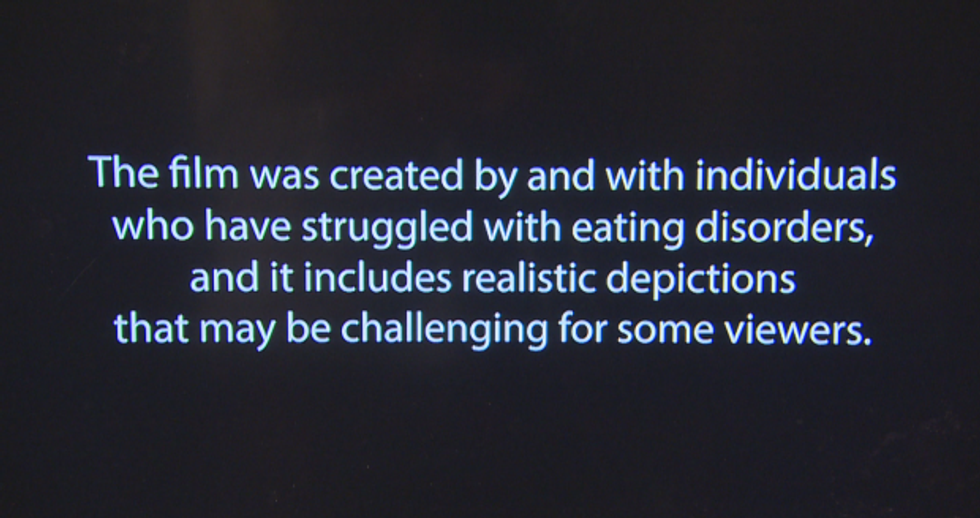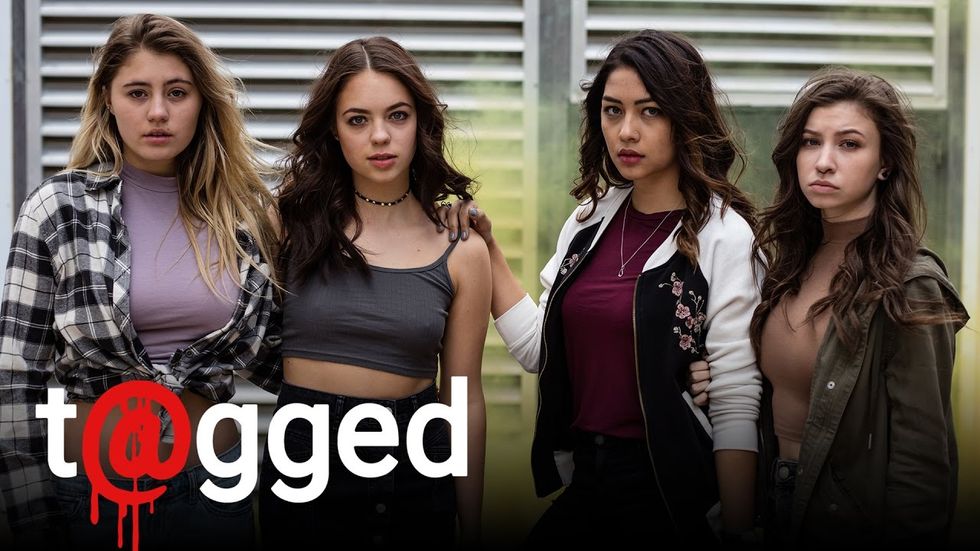Trigger Warning. I can't explain how many times I see those two words when I'm browsing my Twitter feed, reading book and movie reviews or watching shows on Netflix. In case you aren't aware, a "trigger" is something that causes someone to remember and recount a trauma in their lives. It's personal and specific to each individual person. Some people have one, some people have ten and others, like myself, have none. A "trigger warning" then, is a statement of caution of what a show, book or movie can have in it that might be distressing for a viewer who has been through similar events.
If you've watched "13 Reasons Why" or "To The Bone" on Netflix, this will sound familiar to you. Those trigger warnings were meant for those who would be affected by reenactments of rape, assault, suicide, cutting and/or eating disorders.
Trigger warnings are everywhere, and they can come in as many different shapes and sizes as the people who are triggered by them. A lot of the time it's portrayals of cutting or eating disorders that might cause someone to relapse into dangerous and bad habits. Or it's for depictions of sexual assault and rape that might cause a victim of such horrible acts to be reminded of what that was for them.
Overall, trigger warnings seem like a great idea. Why wouldn't you want to stop someone from having to relive their own trauma, especially in movies or books where you might not see it coming if you've never seen or read it before?
Still, I've seen way too many people take aim at trigger warnings, especially in the book community. A few of the arguments are that 1) exposure to triggers is actually helpful to those traumatized in the long run and 2) that trigger warnings are synonymous with spoilers. To those reasons I say, "Are you serious?"
First off, if someone decides to expose themselves to their triggers because they either think it will help their healing or it was recommended by their therapist, okay. That's their decision on their personal road to healing. Who are we to determine that it would actually be good for someone to watch a rape reenactment to help heal from their own rape? We don't get to decide that.
Secondly, part of me can understand the spoiler argument because I'm human and I hate spoilers. But let's not have an issue with trigger warnings and more the people who write them. I think it is a completely doable act to write a trigger warning without ruining a book or movie. Saying there's rape or drug use in something doesn't give away a plot or an ending. But, I think we all need to be a little less selfish in this instance. I don't have any triggers, but that doesn't mean I would want someone else to get hurt or relapse into something dangerous because I didn't want to know that someone at some point in a television show was going to cut themselves.
If you think they aren't necessary, watch something without trigger warnings and tell me if you think it would be dangerous for someone to see their struggles on a screen in front of them. I watched "T@gged" the other day on Hulu and there wasn't a single trigger warning for that show. A girl cut herself, they showed images of anorexia and another girl was taking pills. None of these issues were addressed apart from an acknowledgement that it was happening. No one was helped, no one was taught to heal, in fact it was portrayed as being helpful in some instances.
That's such dangerous territory. As a trigger-free individual I was able to recognize that. A trigger warning wouldn't have spoiled the plot or caused someone not to heal from their triggers. A trigger warning would stop someone who has battled with self harm from seeing this show and possibly starting again. I don't understand how we can argue against something, a simple statement, that could keep someone from hurting. Since when did we become that selfish?



















